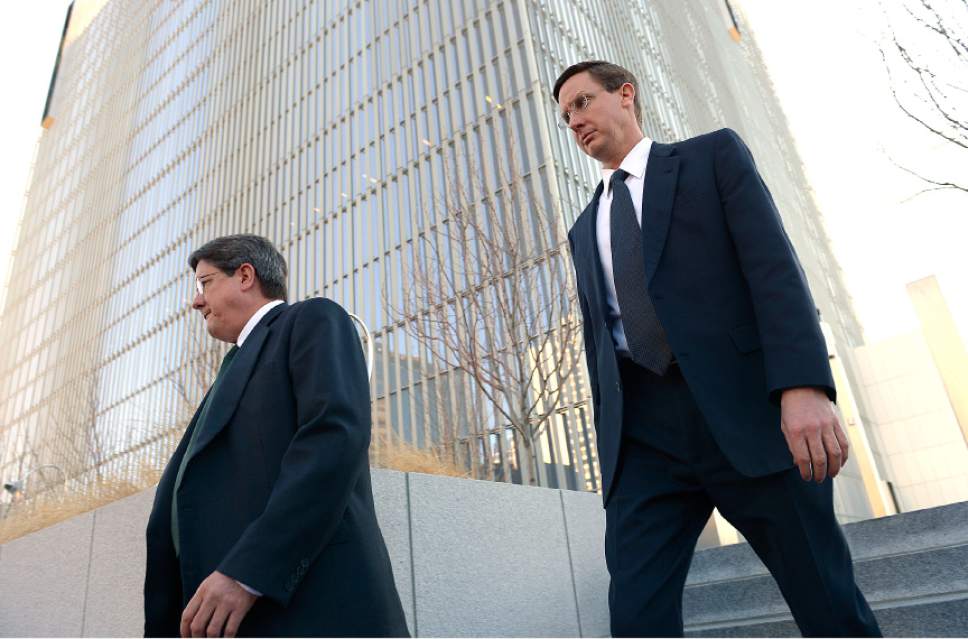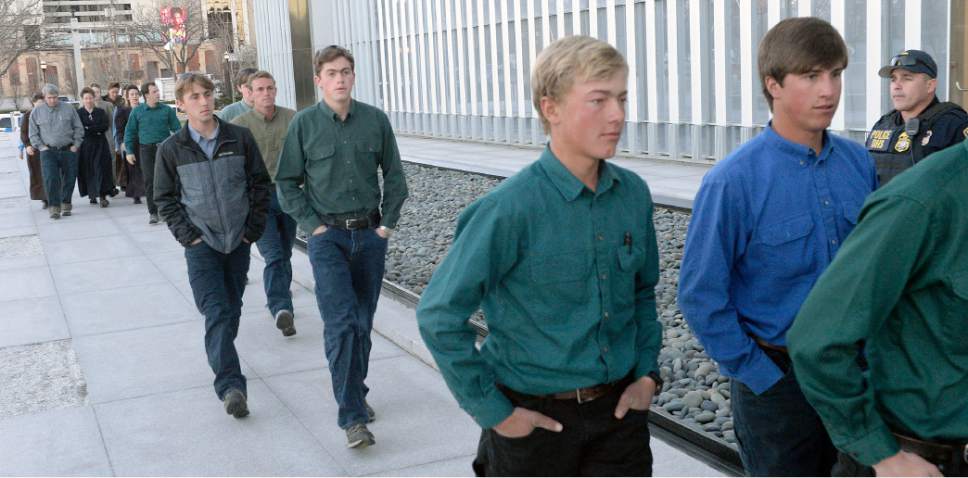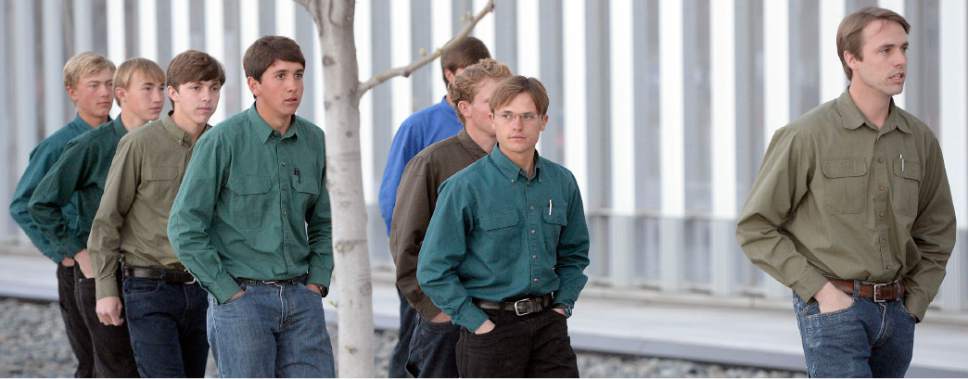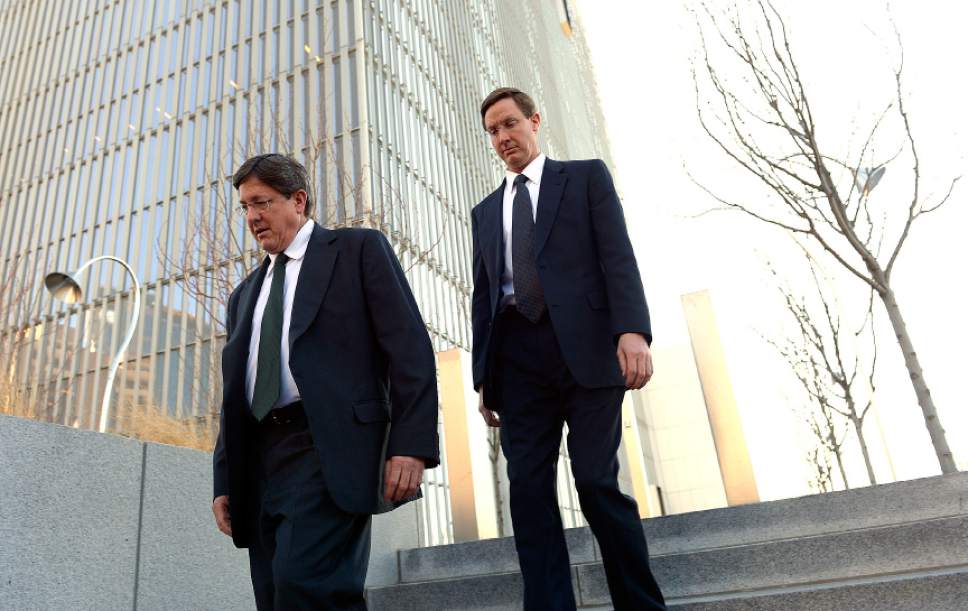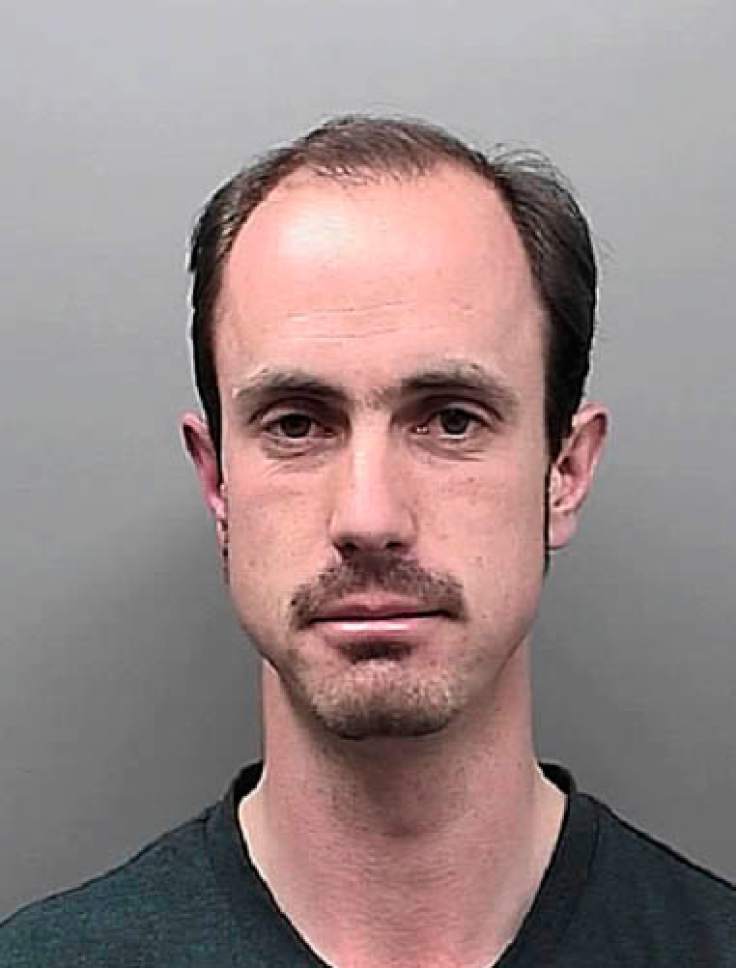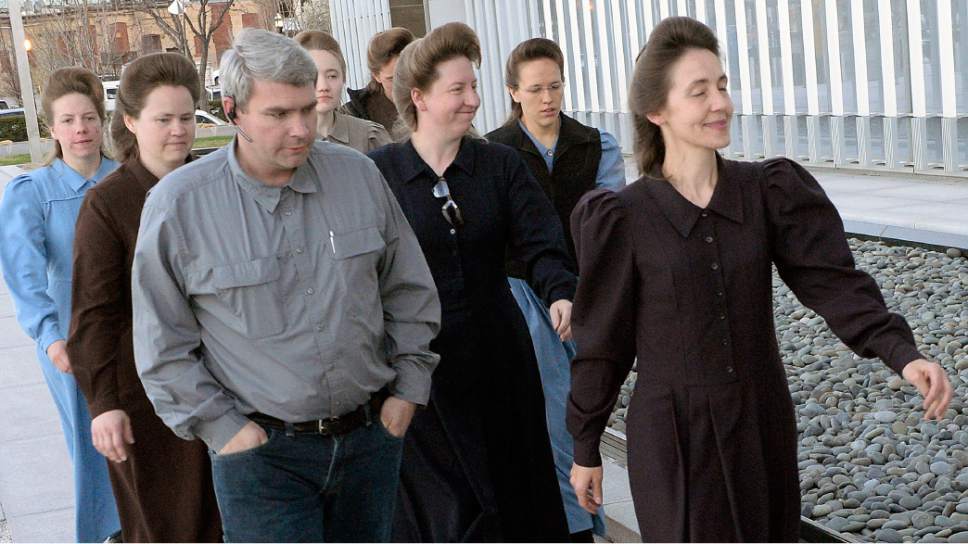This is an archived article that was published on sltrib.com in 2016, and information in the article may be outdated. It is provided only for personal research purposes and may not be reprinted.
Yes, Lyle Jeffs testified, he has sincerely held religious beliefs.
It was Jan. 21, 2015. Jeffs, then a bishop in the polygamous Fundamentalist Church of Jesus Christ of Latter-Day Saints, was testifying in a federal courtroom in Salt Lake City as part of a civil case over the use of child and unpaid labor during a pecan harvest.
Jeffs and other parishioners insisted they shouldn't have to answer certain questions because their religion forbids them from discussing the church with outsiders.
Then, under cross-examination, U.S. Department of Labor Attorney Karen Bobela asked Jeffs what tenets prevented him from discussing criminal activity committed by members of the sect.
"I'm not aware of any," Jeffs replied.
Jeffs is now one of 11 FLDS members charged with crimes in what prosecutors say was a scheme to defraud the federal Supplemental Nutrition Assistance Program. Both the prosecution and defense have entered a transcript of that 2015 testimony as evidence supporting their arguments.
Defense attorneys maintain their clients believe in consecrating their belongings to the church, and that is what they did when they gave their food benefits, or goods purchased with them, to FLDS leaders. They are asking U.S. District Judge Ted Stewart to dismiss the indictments.
A hearing is scheduled for Oct. 4.
The prosecution counters that the proceeds of the food benefits were not evenly distributed among the faithful in accordance with FLDS beliefs. Instead, the government has argued in court documents, the proceeds enriched a few people at the top of the church, specifically Jeffs and another former bishop and defendant, John Wayman. The other nine defendants either benefited from or facilitated the scheme, the government has argued.
The October hearing will be a debate over the Religious Freedom Restoration Act of 1993. It offers protections for the free exercise of religion, but articulates an exception.
The government may "substantially burden" that free exercise if the burden furthers a "compelling government interest" in the "least restrictive means," the statute says.
Michael W. McConnell, a former University of Utah law professor and federal appeals judge who now is a professor at Stanford University, was skeptical Friday the FLDS could overcome the exception.
"Offhand, I would say it is doubtful that the defendants could prove that the government's decision to give them the wherewithal to buy groceries burdens their religious beliefs," McConnell wrote to The Salt Lake Tribune. He does not represent a party in the case.
Prosecutors have complained in court and in papers that the defense is arguing a religious right to break the welfare laws but the defendants haven't admitted that they've done so. They have asked Stewart for latitude in cross-examining the defendants at the October hearing. Thus far, Stewart has limited questioning to the issue of the defendants' beliefs and whether they are burdened.
Religious freedom and compelling government interests have been national discussion points since the 2014 U.S. Supreme Court ruling in Burwell v. Hobby Lobby Stores Inc., in which the court said Hobby Lobby, whose owners are Christian, did not have to provide contraception in its employee health-care plan. Later that year, a federal judge in Utah cited that decision in a ruling that benefited the FLDS in the pecan-harvest case.
There, Judge David Sam ruled that an FLDS member didn't have to answer questions about the church under oath since the witness considered faith's workings to be sacred. The questions were not the least restrictive means because the government could obtain the information from other sources, Sam explained in his ruling.
The ruling slowed the case but did not stop it. The Labor Department eventually deposed Jeffs and other FLDS members, albeit with limited questions. This year, another federal judge ruled that the company that operated the pecan harvest, Paragon Contracting Corp, used child labor in violation of a previous order not to do so. The judge is deciding whether to fine the company.
At the October hearing in the fraud case, defendants will have to show the welfare laws and regulations substantially burden their religious beliefs.
If the defense succeeds on that point, prosecutors must show that the laws and regulations are the least restrictive means of satisfying the compelling government interest.
Defense attorneys plan to have their clients submit affidavits or testify in person to explain their beliefs. For Jeffs, who absconded from pretrial release in June and remains a fugitive, defense lawyers submitted his testimony in the pecan case and other litigation.
Prosecutors plan to rebut testimony about the beliefs by calling former FLDS members who witnessed or participated in diverting the food benefits.
Twitter: @natecarlisle


